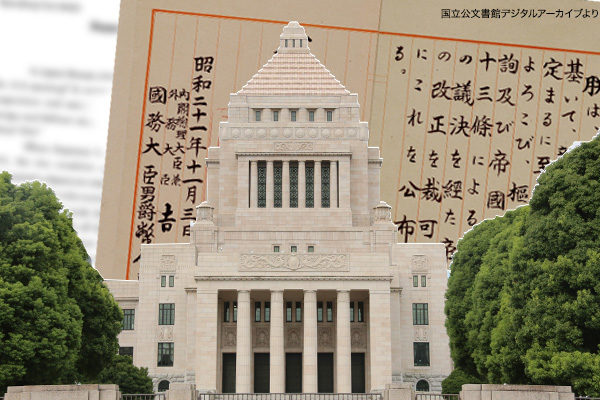Japan is now, quite literally, facing a national crisis. As China steadily prepares for an invasion of Taiwan and the risk of a Taiwan-Japan contingency rises, the U.S. Trump administration is prioritizing “profit and loss” over the “rule of law.” Now that the 80-year-old postwar global order has begun to unravel, what is crucial is for Japan’s political leaders to demonstrate leadership and guide the nation in the direction it ought to take.
Defense efforts reflect the will to defend the nation
The Trump administration, aiming to reduce European allies’ excessive dependence on the United States, has demanded the North Atlantic Treaty Organization members to make defense efforts to increase defense spending to 5% of gross domestic product. In response, NATO approved to accept the U.S. demand at its summit on June 25.
Earlier, on June 20, the U.S. Defense Department spokesman Sean Parnell said Japan and other U.S. allies in Asia need to raise defense spending to 5% of GDP, thereby directing pressure toward Japan as well. The Japanese government has responded that it will set the proportion of defense spending on its own. The current level stands at 1.8% of GDP, with a target of 2% by fiscal year 2027. Whether Japan can increase the percentage to 5% by fiscal 2035 in line with the NATO goal is uncertain.
Defense efforts are not defined by monetary figures such as defense spending. They reflect a nation’s will to defend itself and its determination to confront the threats posed by potential adversaries. For many years, Japan has been derided by the U.S. for “free-riding” on the U.S.-Japan security alliance. In response, Japan has maintained that the alliance is reciprocal because Japan is obliged to provide the U.S. with military bases in return for the U.S. commitment to defend Japan.
However, Japan’s explanation has not resonated with Trump, whose value system is based on profit and loss. On March 7 and April 11, Trump expressed his dissatisfaction: “We have to protect them but they don’t have to protect us.”
Aim for repealing Paragraph 2 of Article 9
The time has come for Japan to repeal Paragraph 2 of Article 9 of the Constitution which stipulates a ban on the possession of war potential, fully recognize the exercise of the right to collective self-defense, and transform the Japan-U.S. security relationship into a reciprocal alliance in which member countries are committed to defending each other. This will allow the two nations to build a genuine mutual defense relationship and increase deterrence against China.
The constitutional amendment will also enable Japan and the U.S. to revise Article 6 of their security treaty, which governs the use of facilities and areas in Japan by U.S. forces, and to update the Japan-U.S. Status of Forces Agreement. By doing so, the two countries will be able to review previously contentious issues, such as Japan’s right of access to U.S. military bases, U.S. forces’ use of Japanese areas including the Yokota airspace (controlled by the U.S. Air Force Base at Yokota in Tokyo), and restrictions on U.S. military training and exercises in Japan. This would mark the establishment of an equal footing between the two nations for the first time since the end of World War II.
Another important point is that the constitutional amendment will pave the way for Japan’s participation in multilateral alliances. While Japan’s relationships with Australia and the Philippines have been regarded as important, full recognition of the right to exercise collective self-defense would make it possible to establish a four-nation alliance among Japan, the United States, Australia, and the Philippines, thereby enhancing deterrence against China.
Now, in this time of national crisis, what we earnestly seek is bold political leadership that can turn adversity into opportunity.
Kiyofumi Iwata is a member of the Planning Committee at the Japan Institute for National Fundamentals. Formerly, he served as Chief of Staff of the Japan Ground Self-Defense Force.


